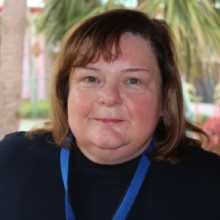Microgravity and Space Medicine in Cancer Cell Activity
A special issue of International Journal of Molecular Sciences (ISSN 1422-0067). This special issue belongs to the section "Molecular Biology".
Deadline for manuscript submissions: closed (31 October 2023) | Viewed by 2644
Special Issue Editor
2. Department of Microgravity and Translational Regenerative Medicine, Otto von Guericke University Magdeburg, Pfälzerplatz 2, 39106 Magdeburg, Germany
Interests: breast cancer; thyroid cancer; prostate cancer; cell biology; gravitational biology; space medicine; tissue engineering; pharmacology; apoptosis; SOX transcription factors
Special Issues, Collections and Topics in MDPI journals
Special Issue Information
Dear Colleagues,
Cancer is a disease exhibiting uncontrollable cell growth and spreading to other parts of the organism. It is a heavy, worldwide burden for mankind with high morbidity and mortality. Therefore, groundbreaking research and innovations are necessary. Research in space under microgravity conditions is a novel approach with the potential to fight cancer and develop future cancer therapies. Space travel is accompanied by adverse effects on our health, and there is a need to counteract these health problems. On the cellular level, studies have shown that real and simulated microgravity impact survival, apoptosis, proliferation, migration, and adhesion as well as the cytoskeleton, the extracellular matrix, focal adhesion, and growth factors in cancer cells. Moreover, microgravity induces in vitro three-dimensional tumor models (multicellular spheroids and organoids) with a high potential for preclinical drug targeting, cancer drug development, and studying the processes of cancer progression and metastasis on a molecular level.
This special issue (SI) focuses on the effects of real and simulated microgravity on different types of cancer cells and on cancerous stem cells. The new studies will demonstrate that microgravity has become an important new technology for increasing current knowledge of cancer biology. In addition, this SI will focus on the impact of cosmic radiation, available countermeasures, and possible applications on Earth. All available platforms to study real microgravity and ground-based facilities available to simulate microgravity on Earth can be used for studying changes in various cancer cell types.
Articles and reviews will be published that examine either the molecular biological background of external signals in cancer or the cellular mechanisms responsible for the manifold changes occurring in cancer cells, cancer stem cells as well as animals when exposed to microgravity.
Dr. Daniela Grimm
Guest Editor
Manuscript Submission Information
Manuscripts should be submitted online at www.mdpi.com by registering and logging in to this website. Once you are registered, click here to go to the submission form. Manuscripts can be submitted until the deadline. All submissions that pass pre-check are peer-reviewed. Accepted papers will be published continuously in the journal (as soon as accepted) and will be listed together on the special issue website. Research articles, review articles as well as short communications are invited. For planned papers, a title and short abstract (about 100 words) can be sent to the Editorial Office for announcement on this website.
Submitted manuscripts should not have been published previously, nor be under consideration for publication elsewhere (except conference proceedings papers). All manuscripts are thoroughly refereed through a single-blind peer-review process. A guide for authors and other relevant information for submission of manuscripts is available on the Instructions for Authors page. International Journal of Molecular Sciences is an international peer-reviewed open access semimonthly journal published by MDPI.
Please visit the Instructions for Authors page before submitting a manuscript. There is an Article Processing Charge (APC) for publication in this open access journal. For details about the APC please see here. Submitted papers should be well formatted and use good English. Authors may use MDPI's English editing service prior to publication or during author revisions.
Keywords
- cancer stem cells
- cancer
- microgravity
- multicellular spheroids
- organoids
- microgravity simulation devices
- spaceflight
- omics studies






